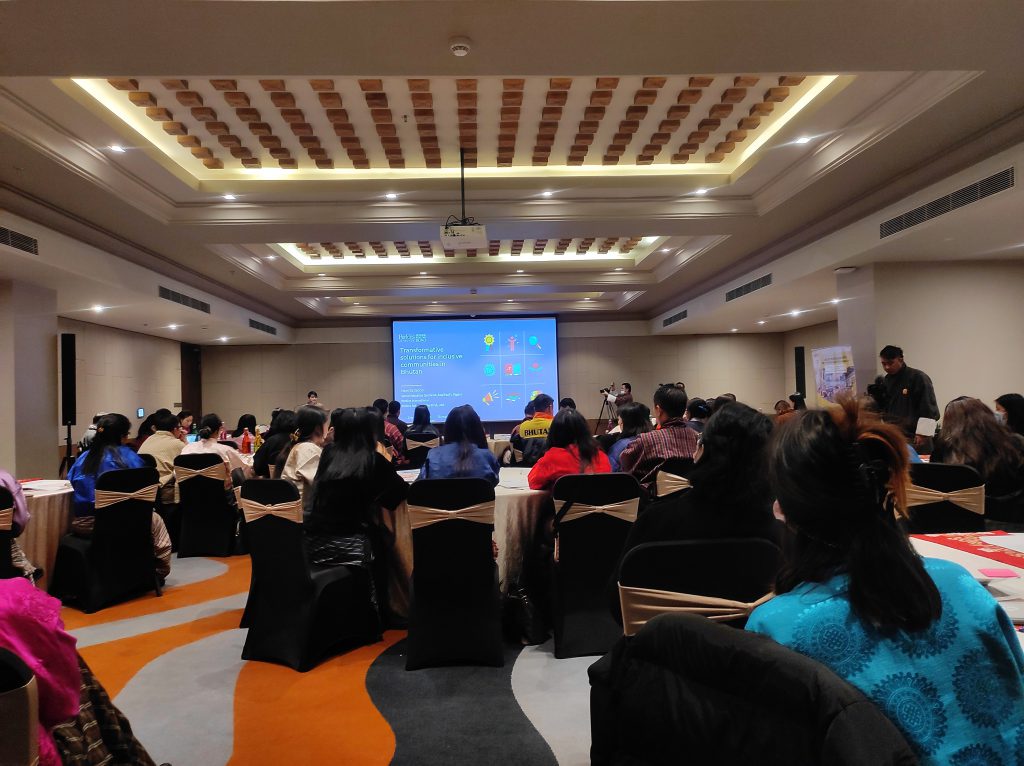By Sangay Dorji
Thimphu
The Ability Bhutan Society(ABS), in collaboration with the Bhutan Foundation and Perkins International, organized a national disability seminar on the theme “Transformative Solutions for Inclusive Development in Bhutan.” The two-day seminar concluded coinciding with the International Day of Persons with Disabilities on December 3 and will include its resolutions and recommendations as a way forward for the ABS.
During the panel discussion moderated by Dr. Namita, Perkins International and panelist Karma Jigyel from Paro College, Pema Wangchug, Fablab, and Dechen Tshomo also shared their perspectives. During the discussion, Karma Jigyel talked about how the course in Paro College of Education for the inclusion of children with Special Educational Needs (SEN) and disabilities in Bhutanese schools will benefit the children with disabilities in Bhutan.
With the introduction of the inclusive education program in Paro College of Education on February 20, 2020, it has come a long way. Karma Jigyel said during the dialogue that there are eleven modules that align with inclusive education, of which four modules focus on assistant technology.
He further added that the students also learn about what they can do given the available resources in the country.
“For example, some children have difficulties in writing; our college students play a role here by providing a pencil grip for differently abled students.”
He added, “Another example could be a slanting board; you don’t need to go to town and look specifically for a slanting board.” Given the local material available, our students have put in their ideas and come up with a wonderful slant board that is cheap and user-friendly.
The different modules include various assignments called “Do it yourself” (DIY) assistive technology, where the students have to put in their innovation to come up with assistive technology that would support communication and daily living skills.
According to Karma Jigyel, these modules support and enhance the way students in college learn about inclusive education so that later on, they can help differently abled children, their parents, and the community as a whole.
The seminar saw participation of about 80 participants – teachers, educators, Early Childhood Care and Development(ECCD) facilitators, SEN Aid, parents & care giver, Persons with Disabilities (PWD) and Civil Society Organisation representatives working in the field of disability. The participants proposed to Leverage on the potential of technology for development of assistive technology to improve accessibility and inclusion, Leverage on the potential of technology for development of assistive technology to improve accessibility and inclusion, and proposed a single curriculum with a pedagogy and assessment that ensures choices and meets the individual needs.
According to the participant the current Curriculum choices are limiting which sets lower standards and expectations or putting them indifferent categories defeats the whole purpose of inclusion.
Inclusive education is the first of its kind in the Bhutanese context and will prepare teacher assistants for schools that support inclusive and special educational needs (SEN) programs.

 BHUTAN TODAY The New Perspective
BHUTAN TODAY The New Perspective
